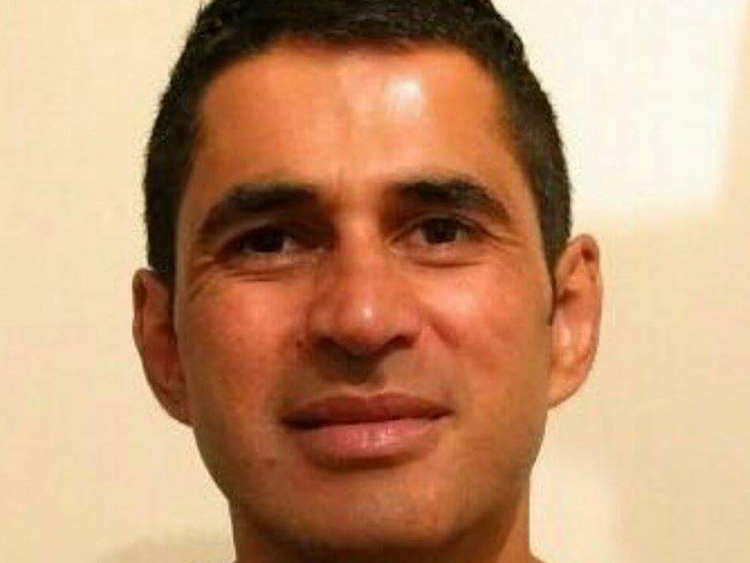
Dubai
Two weeks ago, while discussing career options and lifelong learning with two bright young graduates from Dubai, I came to realise that as a community, we are not preparing our students adequately for the rigoUrs of higher education. Both students told me that one of the most challenging aspects of studying at an international institution was their policy on academic integrity. At school in Dubai, they were not taught the importance of the proper use and acknowledgment of source material.
“As school students, we were widely urged to use search engines like Google to look for information pertaining to the coursework. This created an environment of sub-standard submission material with the practice of ‘copy-pasting’ and basic paraphrasing which largely led to the loss of original thought from the student.
At university level of international relevance, this practice is deemed unacceptable, which creates adjustment issues for the students and affect their grades” Sonakshi Gandhi, now employed as a marketing professional, said. Academic integrity gets compromised when students “buy” their assignments online or use another person to write up their dissertation, copy from another person’s work or submit work that is secured by fraudulent means.
Students resort to unfair practices for various reasons. Good grades are required by those students whose financial aid or scholarships rely on maintaining a certain GPA. For some, fear of losing the scholarship/aid due to poor academic performance makes them resort to cheating.
Students often complain of lack of time, in meeting assignment deadlines or to study enough for an assessment, rigorous semester work-load, multiple exams per day and stressful college routine, any of this could lead them to act with academic dishonesty. Inadequate preparation, missing classes and lack of interest in studies makes students want an easy way out - a quick fix, without much effort. A lack of vigilance and proper monitoring during exams and assessments can also contribute towards cheating.
According to Raj Kapoor, Associate Dean, Operations & Administration, School of Business Administration, American University in Dubai: “Academic integrity is the moral code of academia. Basically it encompasses values such as the avoidance of cheating. It could be the result of a well-thought out plan or an instinctive and spontaneous act. The result however is the same - violation of academic integrity.”
Kapoor states that one of the most commonly cited reasons for why students cheat is a “desire to excel” and get good grades for better jobs, getting into graduate school, to appease parental pressure and shine among peers.
The advent of technology in classrooms has provided a whole array of sophisticated forms of cheating, too. The concept of BOYD (bring your own device) has made it very easy for students to copy and do work with minimal effort. The plethora of information available on the internet makes it attractive for students to simply copy and paste another person’s work.
“At the AUD we use Turnitin, Grammarly, and safe-assign (through Blackboard) to ensure academic integrity though there are several other softwares available,” Kapoor said. “Most students today are used to a culture of rewards and easily earned accolades from the start, and this sets a sense of success and entitlement in young adults. They cannot tolerate failure and desire easy success. for some, even if it isn’t earned, it comes at the cost of lying, cheating and compromising morality.”
The fear of being caught and the resulting penalty (suspension and/or expulsion, or forced course withdrawal) coupled with the shame accompanying these punishments can instill the ethos of not cheating. Institutions need to have clear cut policies for academic misconduct. The academic culture and ethical environment will have a huge role to play in shaping ethical citizens. This will naturally impact the work force and foster a sense of ethics and fair play in every aspect of life. Ignorance is not an excuse. Time management, planning in advance, and balancing academics with extracurricular activities and not leaving assignments to the last minute is imperative.
Unfortunately, not all schools properly train students for research or prepare them for university-level work requirements. Students lack knowledge on how to distinguish between using a piece of work as reference and outright plagiarism.
In March this year, I attended one of the first Academic Integrity conferences in the region, hosted under the aegis of International Conference on Academic Integrity, Middle East Chapter at UOWD. There was a lot of discussion around the significance, the concept, the practical suggestions on how to handle this often neglected area and many educators across Middle East attended the event.
Apart from this, during a recent visit to Agnes Scott College, a Liberal Arts college for girls, in the US, I was impressed by their Honour Code. Many institutions across the West have adopted the Honour Code.
In choosing Agnes Scott, a student accepts the Honour System as her way of life and formally adopts it by the following pledge: “As a member of the student body of Agnes Scott College, I consider myself bound by honour to develop and uphold high standards of honesty and behaviour; to strive for full intellectual and moral stature; to realise my social and academic responsibility in the community. To attain these ideals, I do therefore accept this Honour System as my way of life.”
Ethical practices gets internalised when students follow such codes.
‘Integrity defines a person. It moulds character.’
Dr Zeenath Reza Khan, lecturer of ethics at the University of Wollongong in Dubai, a PhD in Academic Integrity (UOW Australia) and winner of Vice Chancellor’s Award for Outstanding Contributions to Teaching and Learning, and Turnitin Global Innovations Award for Academic Integrity across Middle East and Africa, discusses the focus of her work over the years.
What is the significance of academic integrity?
The morality of the issue – the need to have a clear sense of right and wrong. Most people dismiss the significance of academic integrity as pertaining only to the ‘academic’ world. Imagine a scenario which is too common these days: a student ‘A’ steals another student ‘B’s’ student identity number. He/She uses it to log into B’s school library database, access articles to write research papers and submit them to acquire a competitive scholarship since A does not have access to those in his/her own school library. On the surface, most students would not find this scenario to be too unethical “because there is no visible harm to anyone”. Basically student A stole another student’s property to access a library he/she had no authority to access, to get an unfair advantage over other students and saw nothing wrong in it. What work ethic would he/she carry to the workplace?
Academic integrity is the foundation upon which we help students develop and acquire moral values that they can then take into their work space and the greater society.
Insights from your research.
I have been working in this field for the past 11 years, which ultimately culminated into my doctoral thesis that was conferred last year. Through my research experience I have found that majority of dishonest behaviour in academia is not necessarily malicious. More often than not, students are simply unaware of the fine line that distinguishes between what action is considered dishonest. In the above case, imagine students A and B were friends and B simply shared his/her details with A to ‘help a friend out’. More often than not, in such cases, students are unaware of the significance of authorisation, security, privacy and property rights. What’s more, I have found that if the institution has clear policies that are well understood by staff, faculty and students, students are more inclined to behave honestly.
Do parents and schools fail to make students understand this?
My research has shown that it is more often parent’s own lack of awareness that makes a behaviour dishonest or how important a role they play that fuels such behaviour among children. This is not something that is the responsibility of the academic institutions alone. Parents play a significant role in helping to develop that clear sense of right and wrong. It is a collective duty. We often find parents completing their children’s homework, or skipping work to watch a match on TV but telling someone on the phone that they are not well. What parents don’t stop to think about is how these acts are being perceived by their children. My research has shown significant impact of parents’ attitude towards such acts on their children’s attitude towards dishonest behaviour.
No academic institution wants to breed students who cheat or are branded as such. The institution’s policies, the faculty’s awareness of academic integrity issues, their implementation of those policies, all contribute towards increasing integrity among students.
Integrity defines a person. It moulds character. Don’t run after marks because they will not help you in life. Integrity, if acquired and applied, will stay with you forever and take much further than a mark sheet. Strive for that deeper learning, that knowledge.
Facts: What is an Honour Code?
The honour code is a statement addressing issues such as cheating, stealing, and misrepresentation, made by a school or other institution in which its participants pledge to adhere to. Honour codes are self-regulating because under an honour code, students are required to turn in other students in violation of the code. Some issues addressed in honour codes are the following:
o Cheating
o Plagiarism
o Fabrication
o Multiple submissions
o Misrepresentation
o Unfair advantages
Source: cs.stanford.edu/people/eroberts/cs181/projects/honor-code/honorcodes.html
- The writer is the Director of Counselling Point and has worked with students in the UAE for years










